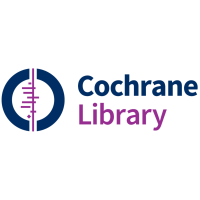
The Cochrane Library, named after Scottish epidemiologist Archie Cochrane, is a collection of specialized databases focused on medicine and healthcare. At its core is the Cochrane Database of Systematic Reviews, which compiles systematic reviews and meta-analyses that summarize clinical research results and provide evidence on the effectiveness of medical interventions.
The goal of the Cochrane Library is to make the results of high-quality clinical studies accessible to physicians, researchers, and the general public, thereby supporting evidence-based medicine.
Database Contents
Since 2018, the Cochrane Library has been composed of several main databases:
- Cochrane Database of Systematic Reviews (CDSR): Contains peer-reviewed systematic reviews and protocols (Cochrane Protocols) prepared by topic-specific working groups.
- CENTRAL (Cochrane Central Register of Controlled Trials): Includes information on controlled clinical trials sourced from databases like MEDLINE, EMBASE, as well as from trial registries (e.g., ClinicalTrials.gov) and hard-to-access sources, including manual searches.
- Cochrane Clinical Answers (CCA): Concise evidence summaries in a question-and-answer format, clearly and visually presented for practical use in healthcare.
- Supplementary content: Includes Special Collections, editorial commentary, and links to other reviews, such as those available via the Epistemonikos platform.
The Cochrane Review Process
Cochrane Reviews are comprehensive methodological studies. Authors conduct systematic searches in databases such as MEDLINE/PubMed, EMBASE, PsycINFO, CINAHL, and CENTRAL. They also use:
- manual searches in professional journals,
- reference checking of already identified articles.
Each study is assessed according to predefined criteria, with attention paid to methodological quality and potential bias.
A statistical analysis (meta-analysis) of the data from individual studies then follows, aiming to create a comprehensive overview of the effectiveness of a specific medical intervention. The resulting reviews are available:
- as complete reports with graphs,
- in abbreviated form,
- or as plain language summaries.
Access and Availability
The Cochrane Library is a paid database, originally published by Update Software and now managed by John Wiley & Sons, Ltd. as part of the Wiley Online Library.
In many countries (e.g., the United Kingdom, Canada, Australia, India, Poland, Scandinavia, South Africa, New Zealand), national funding provides free access to all residents. In developing countries, access is made available through the HINARI program.
Everyone also has free access to:
- two-page abstracts of all reviews,
- summaries of selected articles in plain language.
Between March 26 and May 26, 2020, the Cochrane Library was made temporarily free worldwide in response to the COVID-19 pandemic.
Abstracting and Indexing
According to the Journal Citation Reports, the Cochrane Database of Systematic Reviews had an impact factor of 11.874 in 2021, ranking it 20th out of 172 journals in the General and Internal Medicine category. Reviews are indexed in databases such as Science Citation Index Expanded, Scopus, CINAHL, EMBASE, and MEDLINE.
Academic Discussion and Addenda
Cochrane enables readers to provide feedback on individual reviews via the Cochrane Library Feedback Tool. Accepted comments are published on the review’s page in chronological order.
In the database’s history, there has been only one instance where a serious error in a published review required correction.
Since 1993, Cochrane has organized annual colloquia. Since 2009, abstracts from these conferences have been published as supplements to the Cochrane Database of Systematic Reviews. From 2010 to 2016, the annual Cochrane Methods newsletter (ISSN 2044-4702) focused on systematic review methodology.
Conclusion
The Cochrane Library is a unique resource for professionals and the public seeking trustworthy and systematically processed information on healthcare interventions. Its methodological rigor, international collaboration, and emphasis on transparency make it a cornerstone of modern evidence-based medicine.
